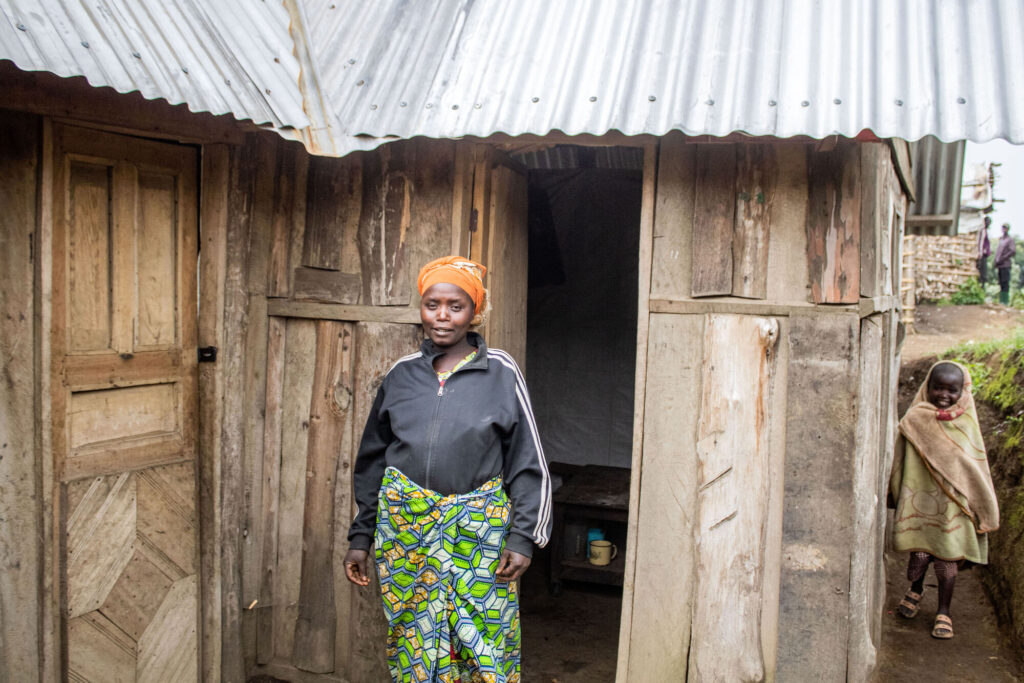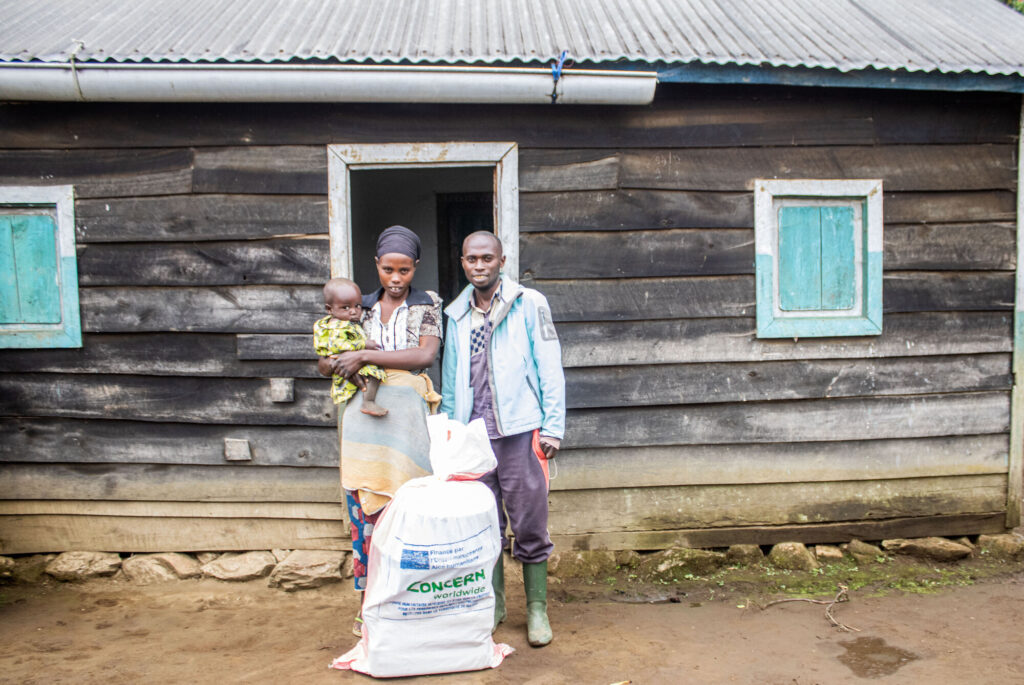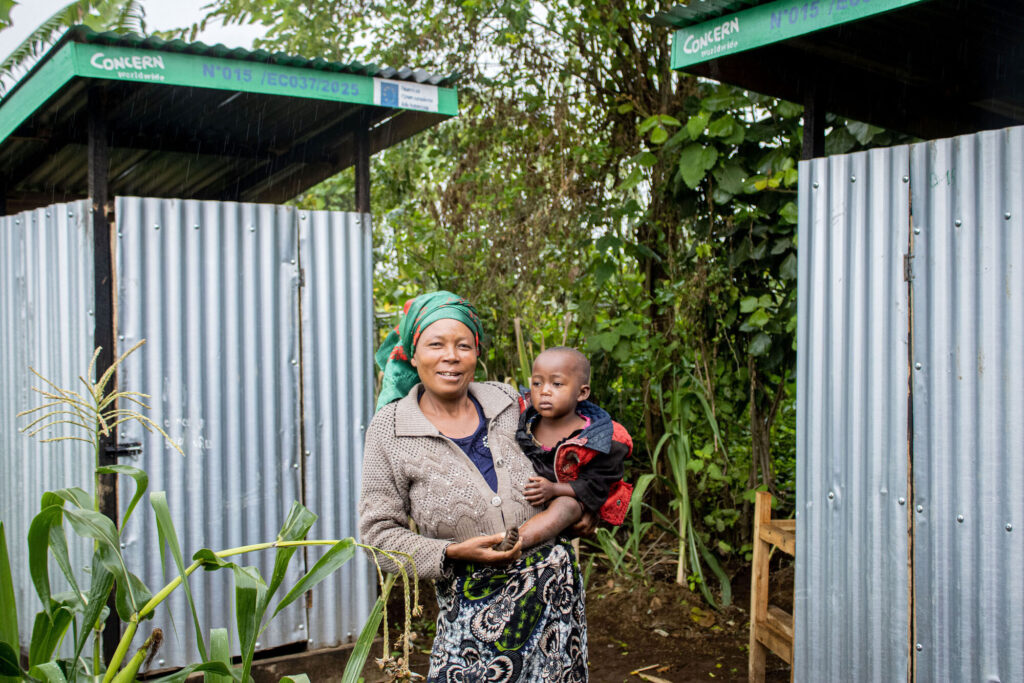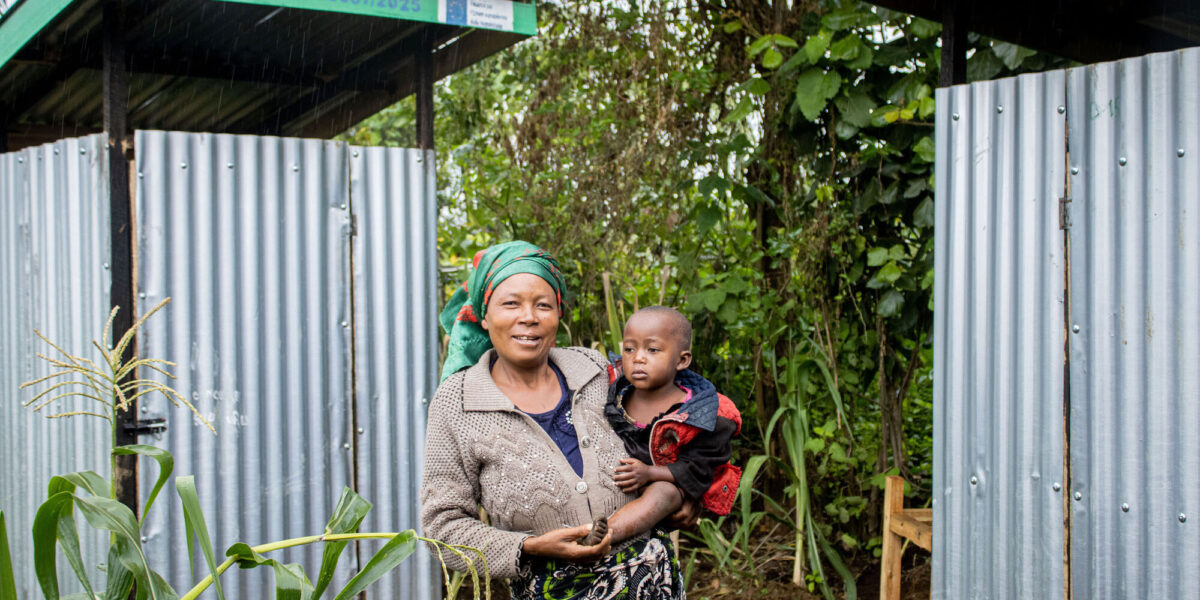“We fled after the arrival of armed groups. I had to ensure the safety of my family.”
This is a chilling scenario that many of us can’t imagine, but is reality for millions of people who have been displaced by conflict in the Democratic Republic of Congo.
Despite decades of ongoing conflict in the Democratic Republic of Congo, the crisis remains largely absent from global headlines. Yet it is one of the world’s most severe displacement emergencies, with 6.9 million people forced to flee their homes. This year alone, the UN estimates that one in five Congolese will need humanitarian assistance to survive.
So, what are the issues impacting people when they are forced to flee their homes?
An unprecedented crisis
In January this year, more than 100,000 people in eastern DRC were forced to flee their homes in just three days – a mass displacement that triggered an unprecedented humanitarian crisis. The sudden influx of displaced families overwhelmed local resources, leading to critical shortages of food and essential supplies, cholera outbreaks in multiple areas, and a sharp rise in protection concerns for the most vulnerable.
It also placed additional strain on the already limited resources of the host communities that sheltered the displaced population.

With funding from the European Union, Alliance2015 member Concern Worldwide alongside its partners Première Urgence Internationale and War Child have implemented an integrated approach that includes healthcare, nutritional support and protection to address the needs of displaced, returning, and host families.
‘At times, our children went to bed without eating’
We met Rafiki Dukuze and his wife Ancila Niyonzima at one of the advanced healthcare clinics that was established under this programme, alongside their youngest son, Israel, who has been treated for acute malnutrition.

Rafiki shared that four years ago, when the conflict escalated, he and his wife were forced to flee their hometown with their four children.
Rafiki had worked as a farmer in their village, and the family lived a relatively stable life before the conflict uprooted them. Although they eventually found refuge in a safer area, new challenges quickly emerged. Rafiki couldn’t find steady employment and had to rely on whatever odd jobs he could find, barely enough to support his family.
He explained: “At times, our children went to bed without eating. We had food with no nutritional value, and our youngest son, Israel, often refused to eat. He eventually became ill and was diagnosed with acute malnutrition.”
Under this project, relays (community volunteers who receive extensive training) carried out awareness-raising sessions, screened for acute malnutrition, and referred children to health facilities.
This is how a community volunteer, while visiting the area, detected signs of acute malnutrition in Israel. He was immediately referred to the health centre for treatment.
“The community volunteers directed me to the health centre. My child is receiving care there, along with Plumpy’Nut. He is slowly regaining his appetite. The doctors reassured me that his health is improving. That brings me great relief,” Ancila recalled.
‘We walked for two days’
Mother-of-six Mutesi Mururugwerwa is back in her home village after spending several months with her young children in a camp for displaced people.

She recalled the night she had to leave home: “Fighting broke out in our village. We were terrified. As a widow, I fled with my children. We walked for two days, sleeping in fields at night, until we found refuge at a site for displaced people.”
Like many households affected by armed conflict in the region, Mutesi and her family endured extremely harsh living conditions, marked by fear, poor sanitation, and a lack of basic infrastructure.
As part of our response to this crisis, Concern and its partners built 150 secure family latrines, installed 75 shower facilities, set up five rubbish pits and rehabilitated two water supply systems.
Constructing basic hygiene infrastructures aims to reduce health risks, uphold dignity, and improve living conditions for communities affected by the crises in eastern DRC.
As part of the programme, Mutesi was selected to receive support, and safe latrines and a shower were installed at her home.
“Before, I was afraid my children would fall into the pit when I wasn’t around, and the shower I used didn’t make me feel safe. Now, my children can use the toilet without risk, and I can bathe in peace,” she explained.


